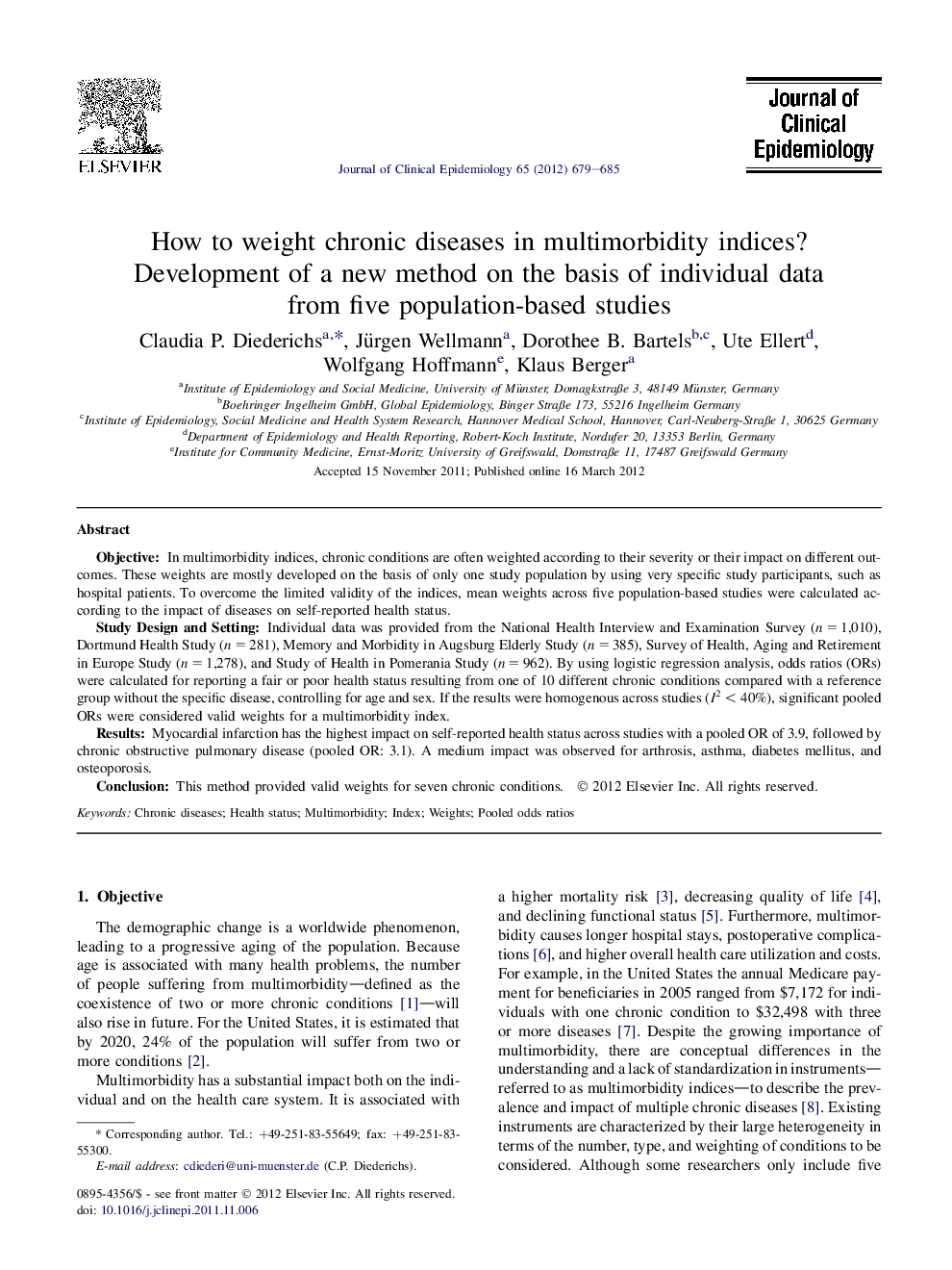| Article ID | Journal | Published Year | Pages | File Type |
|---|---|---|---|---|
| 1082470 | Journal of Clinical Epidemiology | 2012 | 7 Pages |
ObjectiveIn multimorbidity indices, chronic conditions are often weighted according to their severity or their impact on different outcomes. These weights are mostly developed on the basis of only one study population by using very specific study participants, such as hospital patients. To overcome the limited validity of the indices, mean weights across five population-based studies were calculated according to the impact of diseases on self-reported health status.Study Design and SettingIndividual data was provided from the National Health Interview and Examination Survey (n = 1,010), Dortmund Health Study (n = 281), Memory and Morbidity in Augsburg Elderly Study (n = 385), Survey of Health, Aging and Retirement in Europe Study (n = 1,278), and Study of Health in Pomerania Study (n = 962). By using logistic regression analysis, odds ratios (ORs) were calculated for reporting a fair or poor health status resulting from one of 10 different chronic conditions compared with a reference group without the specific disease, controlling for age and sex. If the results were homogenous across studies (I2 < 40%), significant pooled ORs were considered valid weights for a multimorbidity index.ResultsMyocardial infarction has the highest impact on self-reported health status across studies with a pooled OR of 3.9, followed by chronic obstructive pulmonary disease (pooled OR: 3.1). A medium impact was observed for arthrosis, asthma, diabetes mellitus, and osteoporosis.ConclusionThis method provided valid weights for seven chronic conditions.
